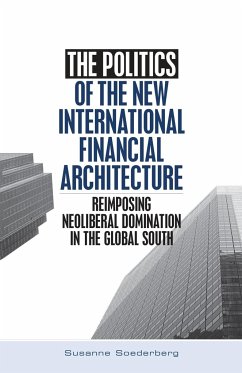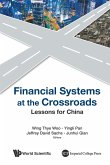Recent years have witnessed a veritable epidemic of financial crises - from Mexico, through South East Asia, Russia, Brazil and now Argentina. The rich industrial countries, led by the United States, have had to respond. This book examines the G7's attempts over the past decade to re-establish rules and a degree of order in the world financial system through the creation of the Financial Stability Forum and the G20, which they are calling the New International Financial Architecture. Susanne Soederberg asks: · Why has the New International Financial Architecture emerged? · At whose initiative? · What does it involve? · What are the underlying power relations? · Who is benefiting? · Will it really work? The author argues, however, that this tinkering with the capitalist system will not achieve either sustained economic growth or stability in financial markets, let alone enhance the capability of developing countries to tackle the problems of mass poverty and social injustice.
Bitte wählen Sie Ihr Anliegen aus.
Rechnungen
Retourenschein anfordern
Bestellstatus
Storno








